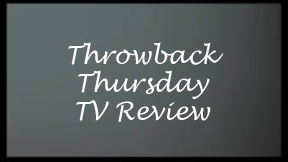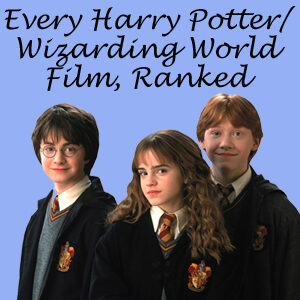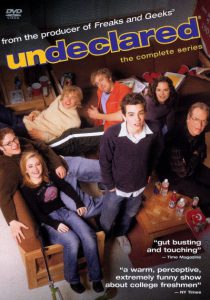I went into this rewatch of “Undeclared” (2001-02, Fox) with a vague image of it in my brain. I remembered it as “‘Freaks and Geeks’ but not quite as good,” because it squeezes into a 22-minute sitcom box. But that’s not quite accurate.
It’s true that “Undeclared” isn’t as great as “F&G” – Judd Apatow’s breakthrough masterpiece from 1999-2000 – but it’s more pleasant than “F&G.” That 1970s-set show is about the pain of high school.
“Undeclared” is about the absurdity of college, and it moves the action to present day. Interestingly, that doesn’t make things more “immediate.” This is a softer, more relaxing show. The stakes are lower (or at least it feels that way). Instead of worrying about getting into college, these youths are already in college – getting there was no big deal, especially a crappy one like the University of Northeastern California.

“Undeclared” (2001-02)
Fox, 17 episodes
Creator: Judd Apatow
Stars: Jay Baruchel, Carla Gallo, Seth Rogen
Wonderfully written dorm mates
Apatow wanted to essentially continue with the “F&G” gang, but Fox only let him keep Seth Rogen, who switches from stoner Ken to up-for-a-kegger Ron. This is a good thing. First for making “Undeclared” stand on its own. Second because this is a helluva cast of wonderfully written characters.
Indeed, the characters and actors make “Undeclared” great. The plot writing is not amazing. The comedy premises are often rote – parents’ weekend, Greek house rush week, and tons of relationship drama, all of it awkward (natch). The guest stars are hit-and-miss, even with a steady parade of “F&G” alumni.
This was before the diversity era, so the main cast is six white dorm mates, four guys and two gals. Jay Baruchel’s Steven, Timm Sharp’s Marshall and Rogen’s Ron are all inexperienced with girls and sexually frustrated, albeit with different approaches toward this core issue in their lives.
As he’d do with “The 40-Year-Old Virgin” a few years later, Apatow makes sex prominent in the stories and characters’ minds, yet does not shame or judge anyone based on their sexual experience, be it a lot or none. The boys are obsessed with sex, but in a natural way, rather than the more neurotic way you’d find with, say, Dawson Leery.
Showing that everyone has problems (they are just of different types), British exchange student and ladies’ man Lloyd (Charlie Hunnam) can get any woman – except when he wants a specific one. Unfortunately, this is one of the handful of threads left dangling by the cancelation.
Diverse personalities
On the ladies’ side of the hallway, Lizzie (Carla Gallo) – the immediate crush of Steven – has the opposite problem: She can’t get rid of overly attached boyfriend Eric (Jason Segel, stepping into the role with hilarious audio-only telephone improv, accompanied by Gallo’s great reactions).

“Dawson’s Creek’s” Monica Keena rounds out the sextet as panic-attack-prone Rachel, on whom Marshall is crushing in a manner even more unrequited than Steven toward Lizzie.
The Fox network must’ve noticed the lack of racial diversity, because Tina (Christina Payano), who is black, becomes a seventh dorm mate around midseason. She also provides more neuro-diversity, in that she has OCD, as seen when she overplays a single Sugar Ray song. Tina eventually might’ve become a strong addition, but she didn’t have enough time.
“Undeclared” certainly has personality diversity, though. This group blends together in that way of one-season wonders where you say “Lightning doesn’t strike like this with every show; cast chemistry like this shouldn’t be thrown away so casually.”
Hanging out with friends
Filmed at a generic-looking campus, with most of the action indoors, “Undeclared” is not a lavish production. It looks inexpensive, making the cancelation even more frustrating.
It’s lovable entirely because of how these six young people bounce off each other like real college freshmen. Even in the episodes that aren’t comedic home runs, I always adore watching Steven and the gang hanging out. They quickly became my TV friends on this rapid-fire rewatch of 17 easily digestible episodes. “Undeclared” is a great show to watch when you’re feeling low and want something smart, but not too heavy.
I admit it can lean mean at times – especially toward Marshall, the closest to a punching bag – but it came out in an era of mean TV. At the time, I remember “Undeclared” being relatively sweet. It still is; Apatow and his writers ultimately see these characters as family. They don’t want to hurt them. Besides, the show reserves its most giggle-worthy TV cliché for the right moment: Marshall gets the gal.
Here are my rankings of the 17 episodes, with the episode number and writer(s) in parentheses:
1. “The Day After” (14, Apatow and Rogen)
It’s the classic conundrum. Lloyd’s tips (for example, instructing Steven to play hard-to-get with Lizzie) obviously work for Lloyd. Yet they don’t feel right for Steven. It’s sweet how Steven and Lizzie run back to the dorm – and each other – simultaneously. In an out-of-character moment, though, Marhsall suddenly makes out with a girl. I guess the writers were throwing him a bone before he figures things out with Rachel.
2. “The Perfect Date” (15, Apatow and Brent Forrester)
Martin Starr wins the award for Best “F&G” Veteran Guest Appearance as he pops in as Steven’s bestie who is in his senior year of high school. We get a rare, fascinating example of Lloyd as a failure in the land of love, as his womanizing ways don’t work on the one gal he truly wants.
3. “Addicts” (7, Jennifer Konner and Alexandra Rushfield)
This is a rare episode driven by the traditional sitcom one-two-punch of a strong premise and winning guest turn. Will Ferrell is spot-on as a townie who makes a living (such as it is) by writing test papers for students. The plot escalates in absurd and funny ways.
4. “Sick in the Head” (5, Rogen)
This is a sweet one, as Rachel takes care of the ailing Marshall; plus, the Rachel-Ron rivalry is fun. The idea of a floor full of students locked out of their rooms because their roommates are having sex is brilliantly absurd. But Steven making out with a second girl on this floor — and never mentioning it again! – is out of character.
5. “Hal and Hillary” (16, Kristofer Brown)
This raucous romp drifts from reality with the practical jokes the gang plays on undeserving R.A. Lucien. But winning me over is the ridiculous turn by Amy Poehler as the mentally unstable and promiscuous women’s R.A. who hooks up with Steven’s dad. Also, Marshall’s exchanges with Japanese student Kikuki on their translator devices are delightful, as is Rachel’s adorable jealousy.
6. “Parents’ Weekend” (9, Rodney Rothman)
As much as Rothman misfired with episode 8, he connects here, especially with the potential-laden pairing of Ron with Lloyd’s visiting (and hot) sister. It doesn’t go where we think it well, and it doesn’t end well for Ron (who gets a surprising character reveal). But this episode is gripping and insightful toward the whole gang, as their roots are revealed.
7. “Eric Visits” (3, Apatow and Rothman)
The first and best of the Eric Trilogy illustrates that nice guys (in this case Steven) can’t help but be nice guys: He actually helps Eric keep Lizzie (for the time being). As for the rest of the gang, let’s just say that “kegger episode” gets checked off the list.
8. “Prototype” (1, Apatow)
Everyone is introduced smoothly and swiftly, as Apatow has no trouble adjusting to the half-hour format (although it’s immediately clear “Undeclared” won’t be as deep as “Freaks”). And it has surprises, as Steven gets to use the doorknob scrunchie and Loudon Wainwright steals scenes as Steven’s well-meaning thorn-in-the-side dad, Hal.
9. “Truth or Dare” (13, Rogen and Apatow)
It’s humorous how the guys script their way into an “impromptu” game of Truth or Dare so they can hook up with the girls of their choice, and the payoffs are appropriately painful. “F&G” veteran guest Busy Phillips uses her natural comedic talents to bounce off love interest Ron.
10. “Oh, So You Have a Boyfriend” (2, Brown)
The awkwardness/sweetness of Steven crushing on Lizzie gets ratcheted up with a rare outdoor sequence – the pair watching a campus screening of “American Pie.” But Segel steals the show in audio-only form as Lizzie’s overly attached long-distance boyfriend Eric. Of interest to owners of the DVD is the original cut, “Full Bluntal Nugety,” featuring a Ted Nugent speech instead of “American Pie.” Credit where it’s due: The studio-mandated version is superior.
11. “Eric Visits Again” (10, Nicholas Stoller)
It’s not all that funny to see angry Eric chasing scared Steven all over the dormitory. As such, the law of diminishing turns in the Eric Trilogy begins. Still, the episode certainly has stakes.
12. “Jobs, Jobs, Jobs” (4, Joel Madison)
This is a missed opportunity to give the gang hilariously absurd jobs, but instead it’s just Marshall and Steven working an annoying cafeteria gig. The twist with Steven’s dad being a waiter is effective – and both mildly depressing and an incitement to keep plugging away when in a career slump.
13. “God Visits” (8, Rothman)
The only unaired episode was unaired with good reason. It’s unbelievable that Steven would go full religious to the point of spurning Lizzie’s overt advances (no matter how good a pitchman Kevin Hart is). It’s like an episode of a different show.
14. “Eric’s POV” (17, Apatow and Stoller)
The writers openly acknowledged this Eric Trilogy capper was a “f*** you” to the network that had canceled them – focusing the final episode on the loser/villain in the love triangle rather than on the happy story of hero characters Steven and Lizzie. Admittedly, it’s a rare storytelling approach, but it mostly makes me sad. Eric isn’t a great guy, granted, but I can’t wish the pain of romantic loss on anyone.
15-16. “Rush and Pledge” (11, Brown) and “Hell Week” (12, Madison and Rogen)
Being a two-parter, this could be the writers saying “The heck with it, let’s write in the one-hour ‘Freaks’ format.” Unfortunately, this cliched – albeit drawn from the writers’ lives – portrayal of fraternities and sororities is not funny. Samm Levine goes against his meek type as a nasty frat chief, but the one-note joke doesn’t carry far, making his the most unfortunate of the “F&G” guest turns.
17. “The Assistant” (6, Apatow, Rogen and Stoller)
I find it gross more so than funny that Adam Sandler selects Lizzie out of the group, literally an object to have sex with. Granted, the episode does nicely capture how that can be stomach-churning for Steven. It’s also a true portrayal of the awkwardness of meeting a celebrity. However, true is not the same as funny, and even Sandler completists must admit this is not a gem of his catalog.

